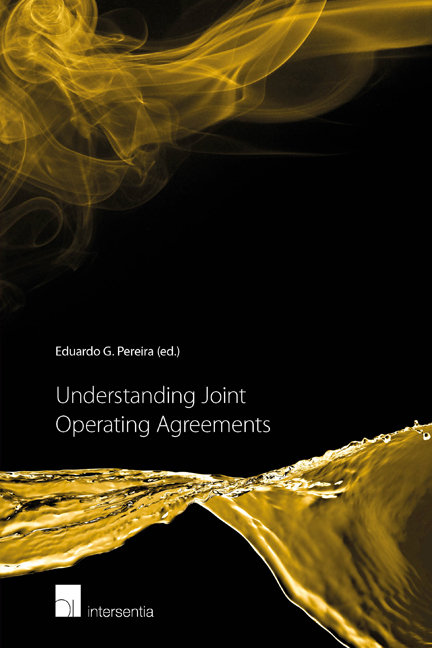14 - The Challenges of Implementing an Exclusive Operation
from PART II.A - GENERAL CONSIDERATIONS
Published online by Cambridge University Press: 15 December 2017
Summary
INTRODUCTION
At the heart of the JOA lies the concept of operations being undertaken jointly by the parties thereto. However, a risk to the ongoing alignment of the JOA parties ‘ respective interests lies in the variable nature of the characteristics of the parties forming the joint venture. Taylor and Tyne identify that ‘ the companies making up a licence group will oft en differ dramatically in size, financial resources, technical capability and in other important respects ‘. The degree of such characteristics possessed by each of the JOA parties will rarely remain static and it should be expected from the outset of the JOA that the characteristics will evolve as the joint venture progresses. The JOA parties are unlikely to maintain a unified perspective on what constitutes the best way forward for the joint venture. Styles clearly describes this reality in the following terms:
‘In an ideal world there would be unanimous agreement among the members on all significant decisions. In practice, there will from time to time be disagreements among the members and normally these disputes will be resolved within the Opcom by means of decisions taken which secure a pass mark.’
Bearing in mind that in this challenging industry we very rarely find ourselves operating in an ideal world, and that disagreements are a common occurrence in practice, it is crucial to foresee the requirement for flexibility in the JOA. This perspective is noted by Shaw, who mentions that although ‘ a JOA is intended to be comprehensive, it cannot cover all issues and should, therefore, be a flexible, interactive framework that allows for evolution. ‘
The concept of the exclusive operation deals with circumstances in which a proposed joint operation does not secure the necessary pass mark or does not have the support of all the parties at the Joint Operating Committee (Opcom), in that it provides a way forward for the proposed operation without the participation of all the parties to the JOA. In effect, exclusive operations clauses are an example of the practical implementation of the flexibility to which Shaw refers and they tend to be amongst the most complex clauses in a JOA.
Information
- Type
- Chapter
- Information
- Understanding Joint Operating Agreements , pp. 293 - 306Publisher: IntersentiaPrint publication year: 2016
